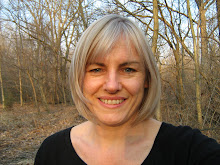Hi....I write a weekly garden column, so this will also be a part of my blog - at least once a week.
Here is this week's column:
School is out and children are home. Time to involve them in your gardening, if you can drag them away from the television, the computer, and video games. I know all about it, I have a tech savvy daughter who learns more every day from my husband who is a computer professional. She is now working on building a web site to share her interests – Japanese Anime (Inuyasha), Jim Carrey, and comedy in general.
Back to gardening – I do try to get her involved – and she did help me plant the flowers at my church a couple of weeks ago and did a good job. Next I am going to suggest she raise some miniature tomato plants and sell them instead of lemonade.
If you involve children in your garden, or if they just like to explore and play in it like my two grandsons James and Jonah, you want to avoid harmful chemicals such as pesticides and herbicides, and in this column I will talk about some alternative products I use.
Have you noticed an increased population of sowbugs/pillbugs/roly polies? They are overrunning my pots and garden. They have their place – they help process organic matter, eat dead plant material, etc. But they will also feast on young tender plant material if it is available. To contain their population to reasonable numbers, use Diatomaceous Earth, a product readily available in garden sections of stores. This is a wonderful product that is totally harmless to people or pets but will kill cockroaches, ants, bedbugs, fleas, boxelder bugs, carpet beetles, centipedes, crickets, earwigs, grasshoppers, ticks, millipedes, scorpions, slugs, and silverfish. Diatomaceous Earth is made of the fossilized remains of very tiny creatures called diatoms. It looks like a fine white powder, and the very tiny particles have microscopically sharp edges, which cut the exoskeletons of pests so they dehydrate and die in short order – all with no dangerous chemical residues. The way to use it is to dust it onto the areas where pests are seen – around plants on the soil, in potted plants, in your pets bedding and fur, along baseboards and windowsills, etc. In the garden it needs to be reapplied after rain. I am sprinkling it around all my hostas along with crushed eggshells to control slugs. I love my hostas and don’t want them decorated with lots of holes. Try Diatomaceous Earth for garden and home pest control; it is reasonably priced and readily available. Keep it in a “shaker” container with a label for convenience. To read more specifics about it, here is an informative web page - http://www.hydromall.com/happy_grower16.html
On one of my Internet gardening lists, someone said they use grits to kill ants. One simply sprinkles dry grits on anthills, the ants eat it, and then they “pop” and die. I think I will buy a box of grits and be ready in case I uncover another ant colony near my house.
Those pesky mosquitoes that come back every summer often mar evenings spent in the yard. Drain standing water, keep fish in your pond to eat larva, and use insect repellant. If, like me, you choose to avoid using harmful chemicals if at all possible, try Avon Skin So Soft as a bug repellant. I used this when we vacationed in Sanibel Island – the sand “fleas” were terrible, but if we rubbed Skin So Soft on our legs they left us alone. Skin So Soft can also be added to the rinse water when bathing your dog to repel fleas. Avon has also added some new products that have Skin So Soft in it to be sold as bug repellant, such as combos of it and sunscreen, and when I just checked out Avon’s website – I see that all the Skin So Soft specialty products are on sale. Just the regular Skin So Soft works well, though. You can purchase from the website - www.avon.com - or your Avon representative. I have no affiliation with Avon, other than I sold it for a few months about twenty-five years ago. I do have an interest in keeping myself, my family, and my garden free of harmful chemicals and I try to encourage as many people as possible to do the same. For more alternatives to harmful chemicals for various uses in the garden (and many other great products) visit www.gardensalive.com, which is located in Lawrenceburg, Indiana.
Subscribe to:
Post Comments (Atom)

No comments:
Post a Comment